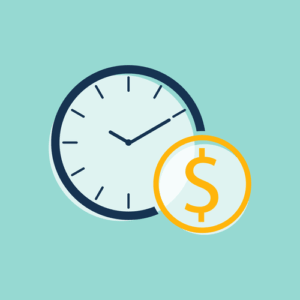
Part of your responsibility as a property manager is to track payments made to independent contractors and service providers and issue them an IRS Form 1099-MISC by the end of January. These 1099 forms must be provided to contractors by January 31 and filed with the IRS by February 28. Investigate any statement gaps to ensure no unpaid or lost invoices. If you use property management accountants NNN leases, you’ll need to set up a way within your accounting system to track everyday area expenses and annually bill for tenants. A big part of accounting is tracking your expenses for the sake of accurate tax reporting. However, when it comes to business accounting, especially property accounting with its quirks, you want your taxes handled by a professional.
Professional designations
Annual property budgets estimate income and expenses to determine profitability. Cash flow forecasts project income and expenses month-by-month to anticipate cash needs. By comparing actuals to budgets and forecasts, property managers can quickly see financial performance deviations and make adjustments. Property managers should produce comprehensive financial reports on a monthly and quarterly basis.
They need an expert in their accounting software.
- There are, however, certain accounting actions that make property management accounting unique.
- No specific regulatory or licensing body exists at this time (November 2012).
- There are several critical components to rental property accounting, and banking is certainly one.
- The hotel industry deals with transactions 24/7, guests all the time, no particular time for any guests, and every individual arrives at his/her discretion.
As such, accounting as a property management company is part of the deal. The next step property managers should take when setting up their accounting system is determining which accounting method to use. There are two primary methods to choose from—accrual accounting and cash basis accounting. Good property management accounting lets you see how much profit each property is making. It allows you to accurately record your expenses, so you can make the most of tax deductions. And it makes it easy to report income and expenses separately for each property—something the IRS requires you to do.
Bookkeeping
Sole proprietors often use this method, as it’s an easy way to manage your accounting in the early stages. However, all businesses with employees are required to use the accrual accounting method (see the next point below). Commercial Property Management leasing agents in New Zealand are required to have a real estate agents licence and operate and audited trust bank account. In recent year property management in Australia has changed from a brick and mortar business to virtual online.
Owner report or rental owner statement
If you want to run a tight ship, you’ll need good record keeping skills. The IRS also requires that you keep all essential financial records for at least three years. Learn the fundamentals with our guide to small business recordkeeping. Some expenses that apply to both the personal and rental part of your home can be deducted as business expenses. For instance, if you paint a room that you typically rent out, you can deduct the expense—even if it’s an improvement that might increase the value of your home overall. If you’re a Bench customer, your bookkeeper will prepare them for you.
- For example, when you run reports or review parts of your accounting with your accountant, you’ll have a better idea of what they’re talking about and be able to offer more accurate and valuable input.
- Debit refers to the opposite of credit, being any transaction that appears on the left side of an asset account.
- We’ll also give you some actionable advice on how to create an accounting structure that’s both easy to implement and maintain.
- It lays out approved methods for measuring, recording, and reporting accounting data.
- We expressly disclaim all liability in regard to actions taken or not taken based on the contents of this blog as well as the use or interpretation of this information.
- It helps you understand how much money your business is making or losing.
Some states, like Pennsylvania, allow property managers to work without a real estate license if they do not negotiate leases, hold tenants’ money, or enter into leases on the property owner’s behalf. From opening a bank account for each property to generating the right financial statement, property management accounting will keep the rental cash flow coming. As the tenant pays, property accounting will help navigate the ledger, maintain appropriate bank reconciliation during accounting periods, and ensure a gross profit. That can include transactions such as rent collection, property taxes, insurance, repairs and more.
You need to regularly (often monthly) make sure that your general ledger (see above) and the actual statement balance across your business bank accounts match up. Your general ledger, or G/L for short, is a complete record of all your business transactions. Chances are, if you use a basic accounting software already, this is generated automatically as you input transactions. If you’ve ever run a report in QuickBooks or a similar accounting software to see your revenue, expenses, or other factors, you’ll recognize that every report uses an accounting period.

Is property management accounting hard?

Key financial concepts such as cash flow, profit and loss statements, and balance sheets are essential for property managers to understand. Common accounting challenges such as tracking expenses and creating budgets can be overcome with the right tools and best practices. Essential accounting software such as QuickBooks and AppFolio can help property managers streamline their accounting processes. Finally, hiring a property management accountant can help ensure that your properties are managed efficiently and effectively.
So rent revenue is recorded in the month it is due, regardless of when payment is received. Expenses are recorded when the liability is incurred, not necessarily when paid. Look for an accountant who has experience working with property management businesses. https://www.bookstime.com/ They should be familiar with the unique challenges of property management accounting. Those features depend on the software, but they often include invaluable tools like a built-in tenant portal, automated rent payments, and a work order management system.
- Reviewing and adjusting your budget regularly is essential for ensuring that it remains accurate and up-to-date.
- This is the one spot where all transactions are tracked as they happen, usually organized month by month.
- Property managers can use accounting software that automates the reconciliation process and reduces the risk of errors.
- A typical early accounting mistake is to do your property and other business transactions from a personal account.
- Include details such as tenant names, rental amounts, lease terms, and payment history.
- By staying organized and being diligent about tax reporting, property managers can ensure they remain in compliance.

